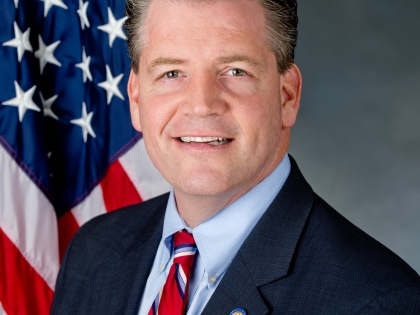
New Life-Saving Law Allows Bus Drivers to Carry Epipens
December 19, 2017

ALBANY, NY - As the father of a child with severe allergies, Senator Terrence Murphy carefully monitors his child's meals and snacks. He has heard the horror stories, including the sudden death of a Michigan student in 2015 who had an allergic reaction to peanuts while traveling on a school bus.
Knowing every second counts in a life or death situation, Senator Murphy sponsored S6005A, legislation allowing school bus drivers to administer an epinephrine auto-injector in emergency circumstances. Assemblyman David Buchwald sponsored A7635A, a corresponding bill in the Assembly.
Senator Murphy is pleased to announce that the new law to protect the lives of children with severe food or other allergies will take effect December 19.
"The passing of this legislation will further benefit our children's safety," said Senator Murphy. "If they find themselves in a life-threatening situation, a bus driver now has the authority to administer epinephrine. Having an EpiPen available and someone who is trained to use it can literally save lives."
"This is a happy day for the parents who in the past would not allow their children who suffer from severe allergies to ride the school bus," said Assemblyman Buchwald. "Now that school bus drivers can be trained to administer life-saving epinephrine auto injectors, parents will be able to put their children on the school bus with all the other children. It's a day a lot of kids have been looking forward to for a long time."
Food and other allergies, such as bee stings, present an ever-increasing danger to children across the United States. If a child with severe allergies is exposed or accidentally consumes an allergen, this can produce a serious reaction called anaphylaxis, which can lead to death. An epinephrine injection works to help immediately reverse the effects of anaphylaxis and is critical in the treatment of severe allergic reactions.
While prior law allows those employed by school districts and other educational institutions to administer the live-saving injection, those who work for agencies contracted out by a school district, such as transportation services, were not authorized.
Thousands of children travel to and from school every day by bus. Many children may eat breakfast or a small snack, increasing the likelihood of a child being exposed to an allergen and having a severe reaction. While children with allergies to certain foods frequently carry their own EpiPen or other medicine, this new law will allow bus drivers to administer the injection and save the child's life.
In November 2015, a 17-year-old high school student in Michigan died after experiencing an allergic reaction to peanuts on a school bus. He might have been saved if there had been an EpiPen onboard.
The impetus for Senator Murphy's bill sprang from an incident in Agawam, Massachusetts in October 2014, when a high school student experienced a severe allergic reaction. Swift action by the school bus driver, who administered the epinephrine, saved the girl's life.
Share this Article or Press Release
Newsroom
Go to Newsroom


